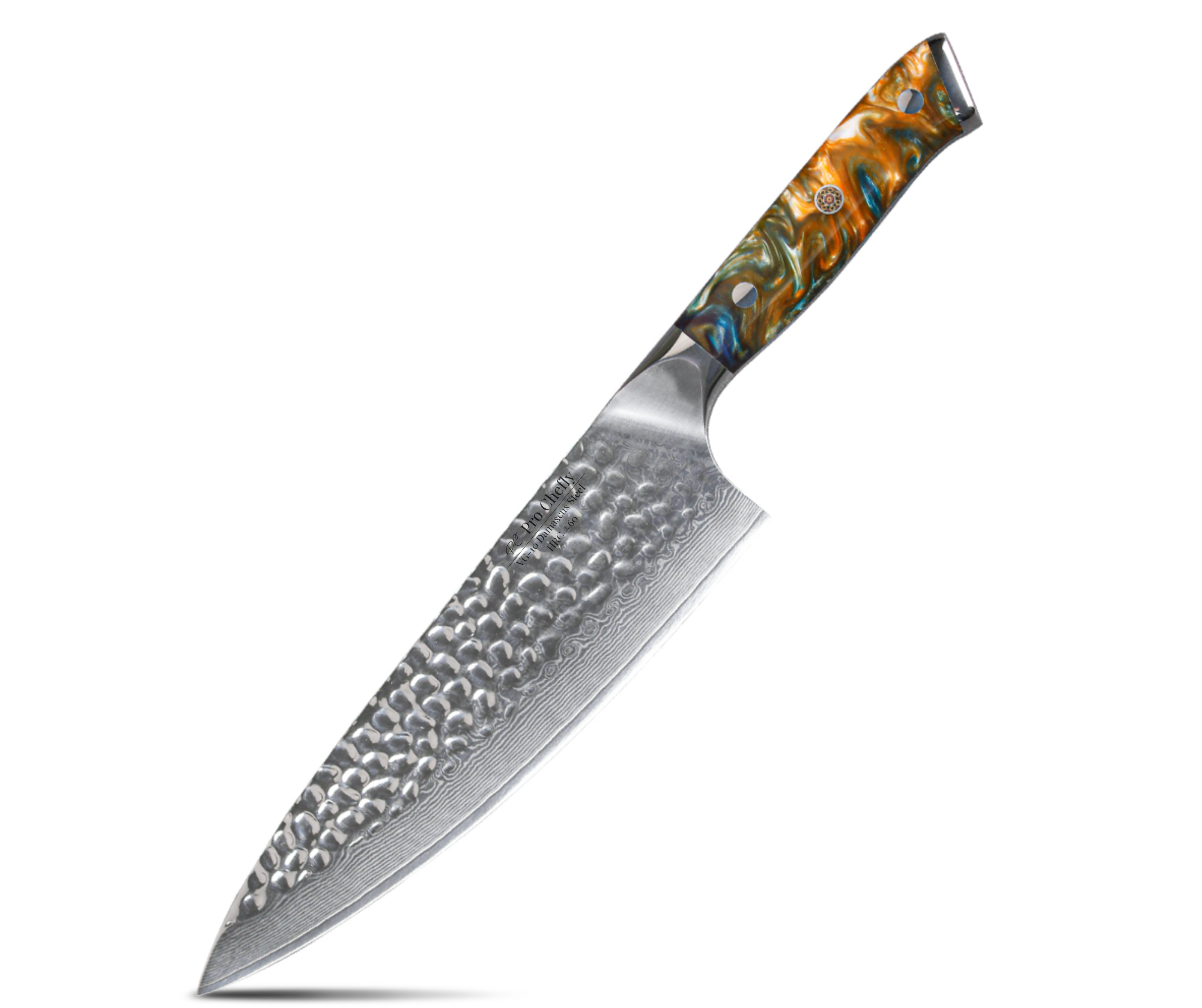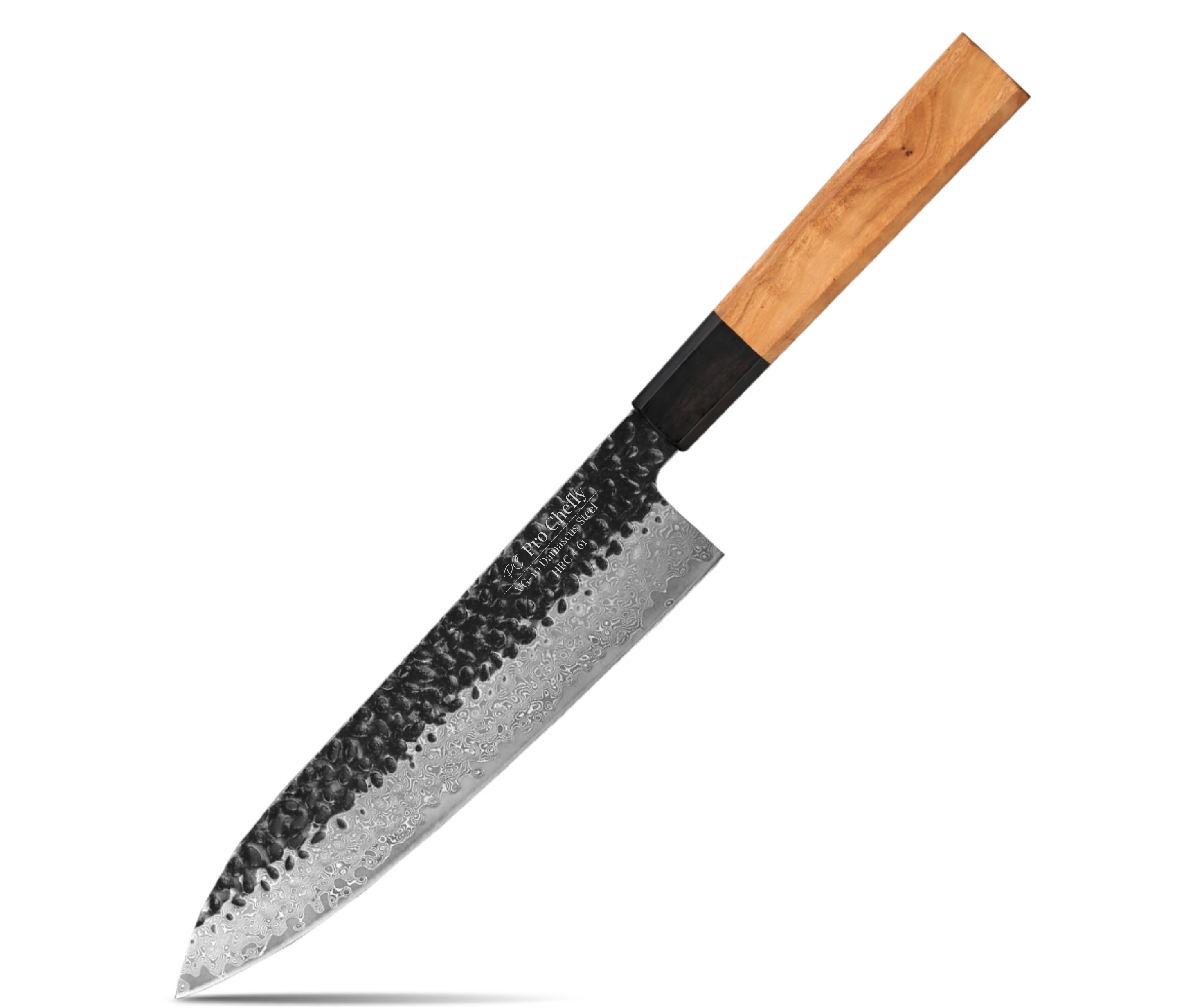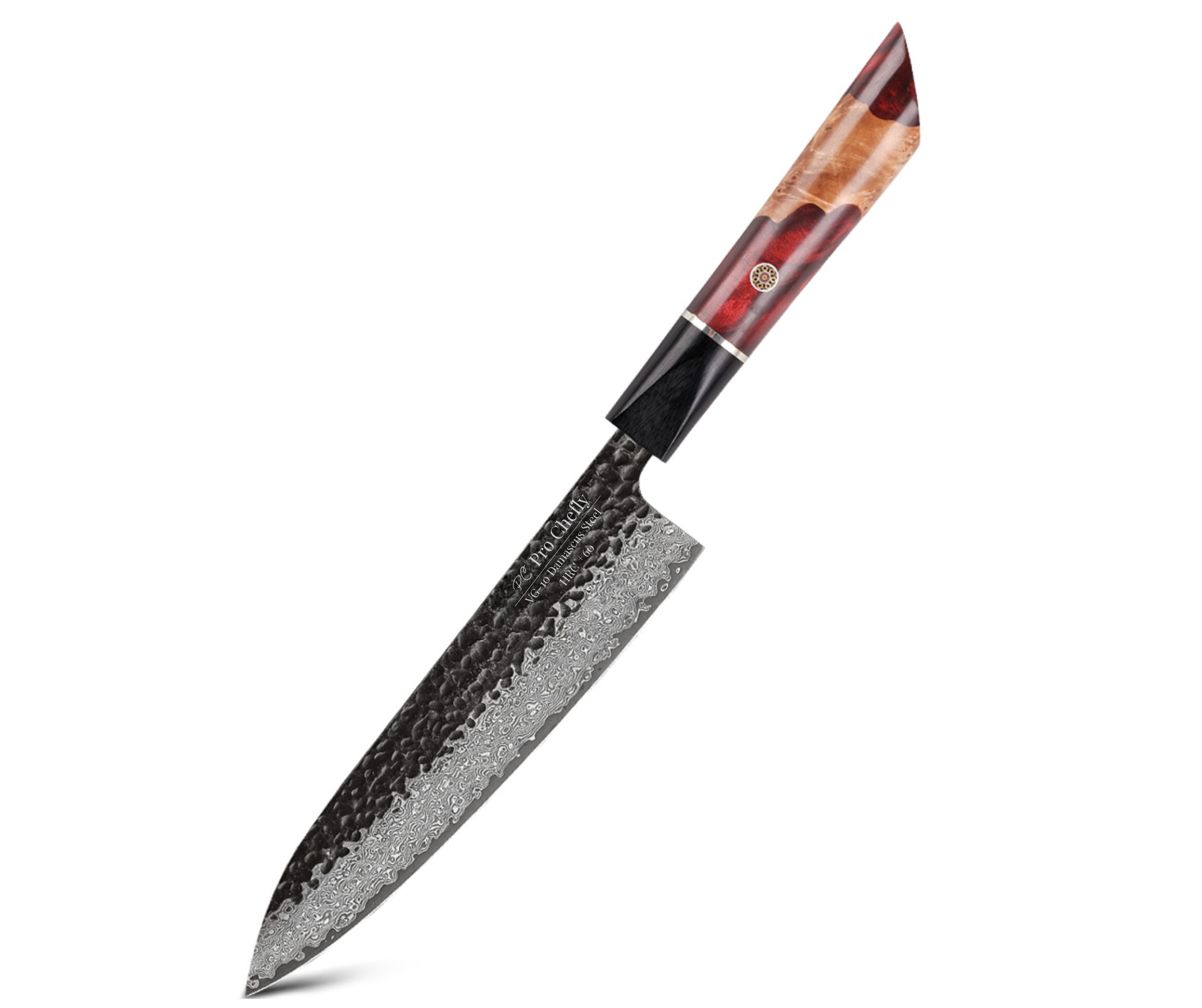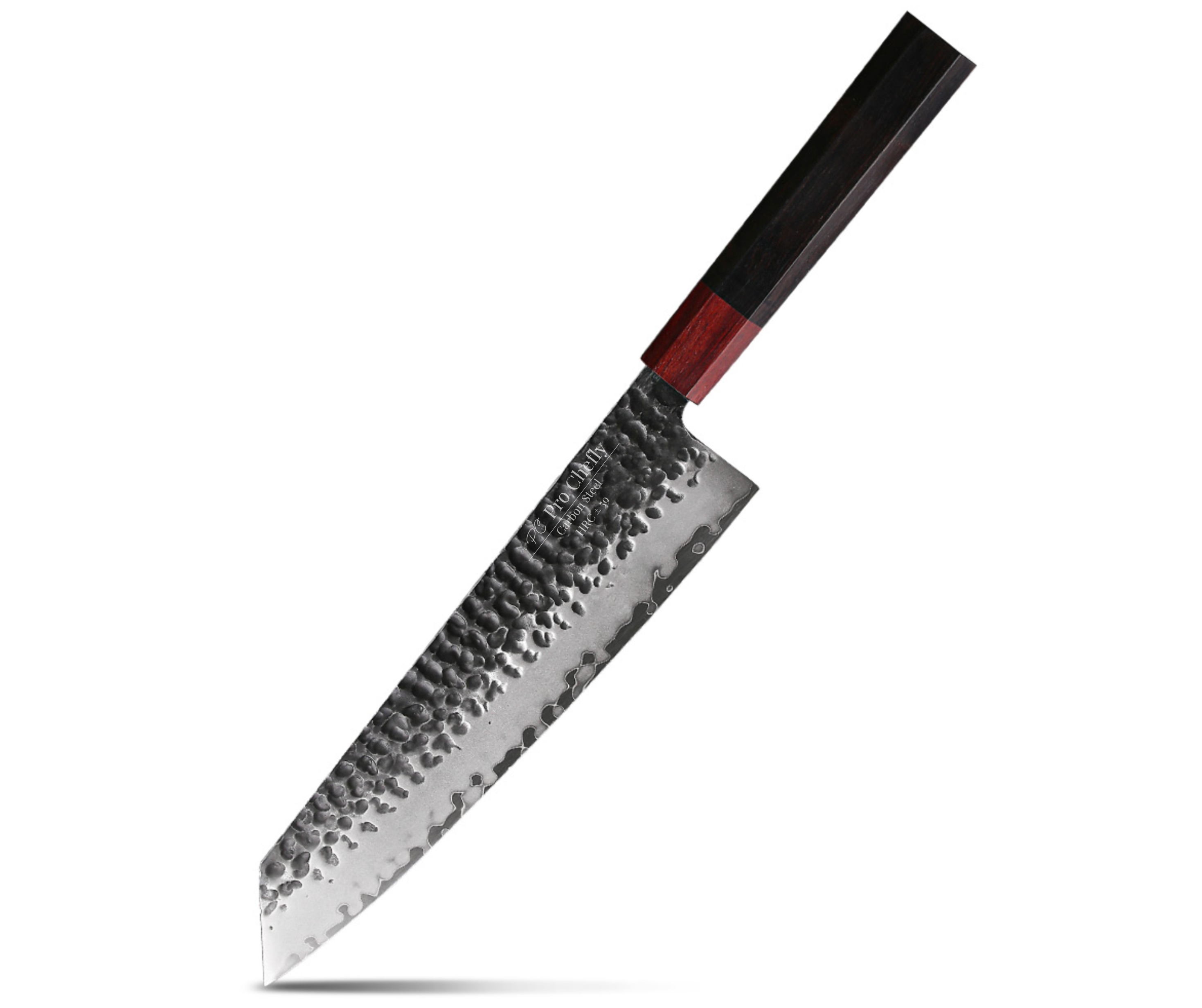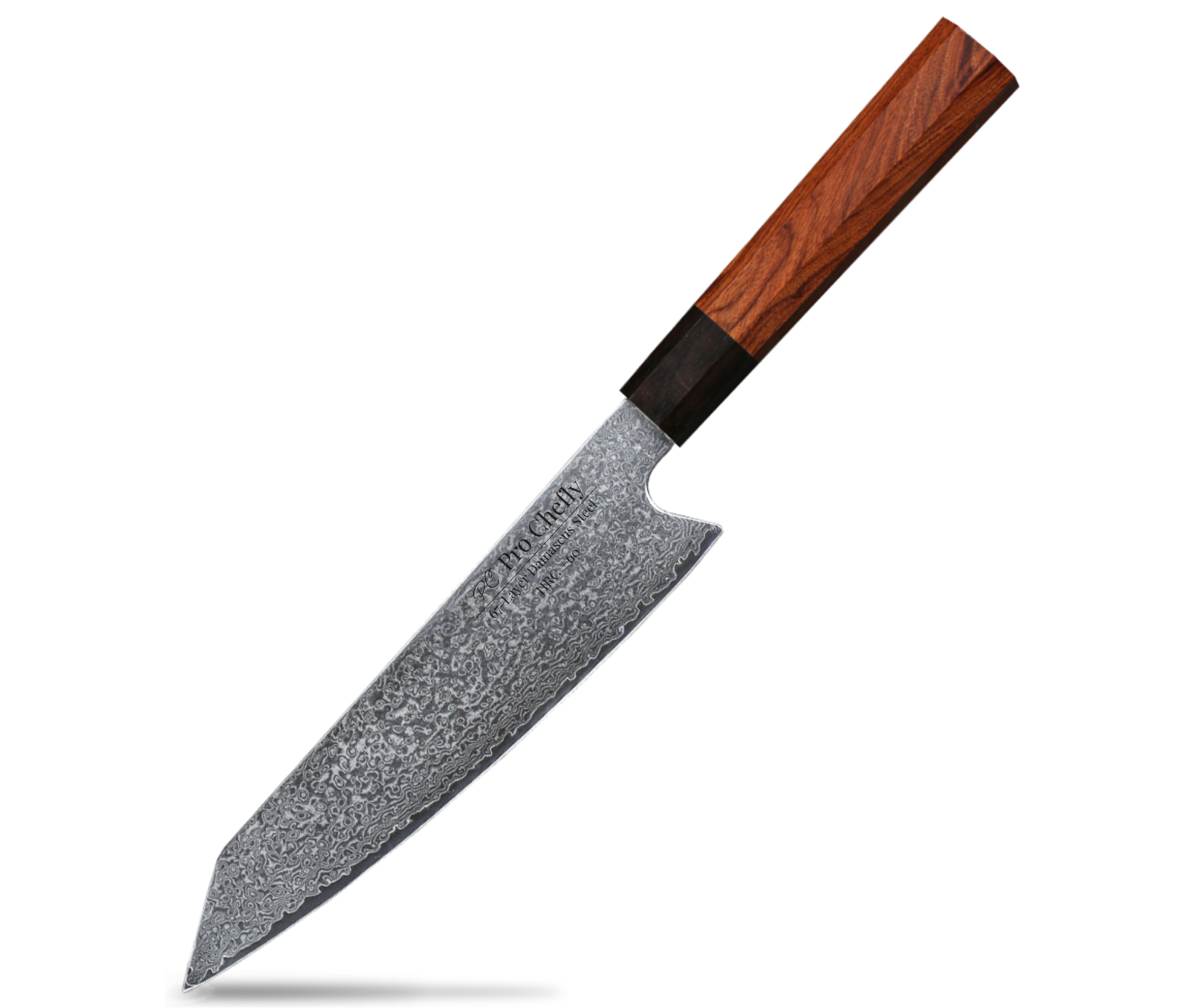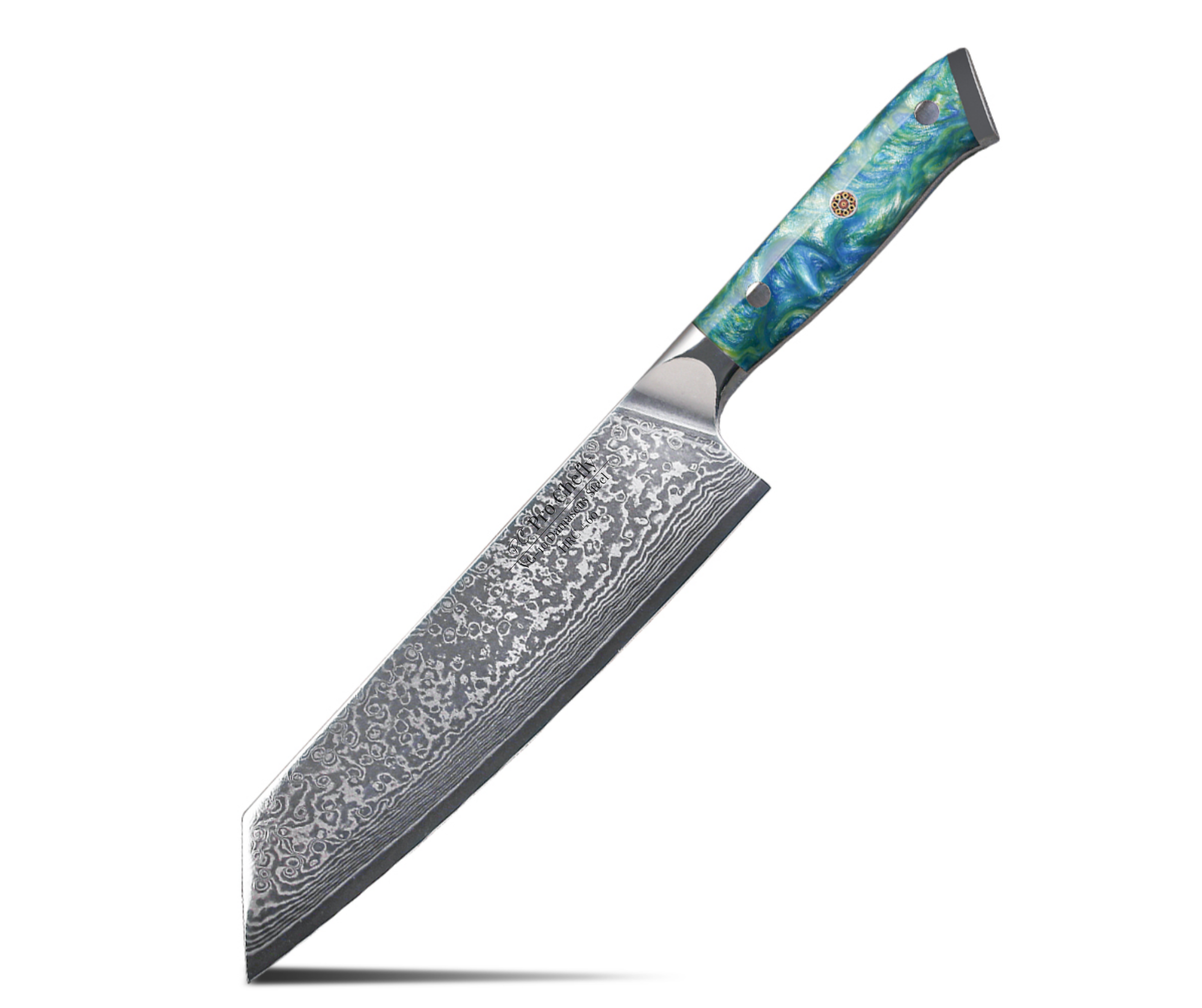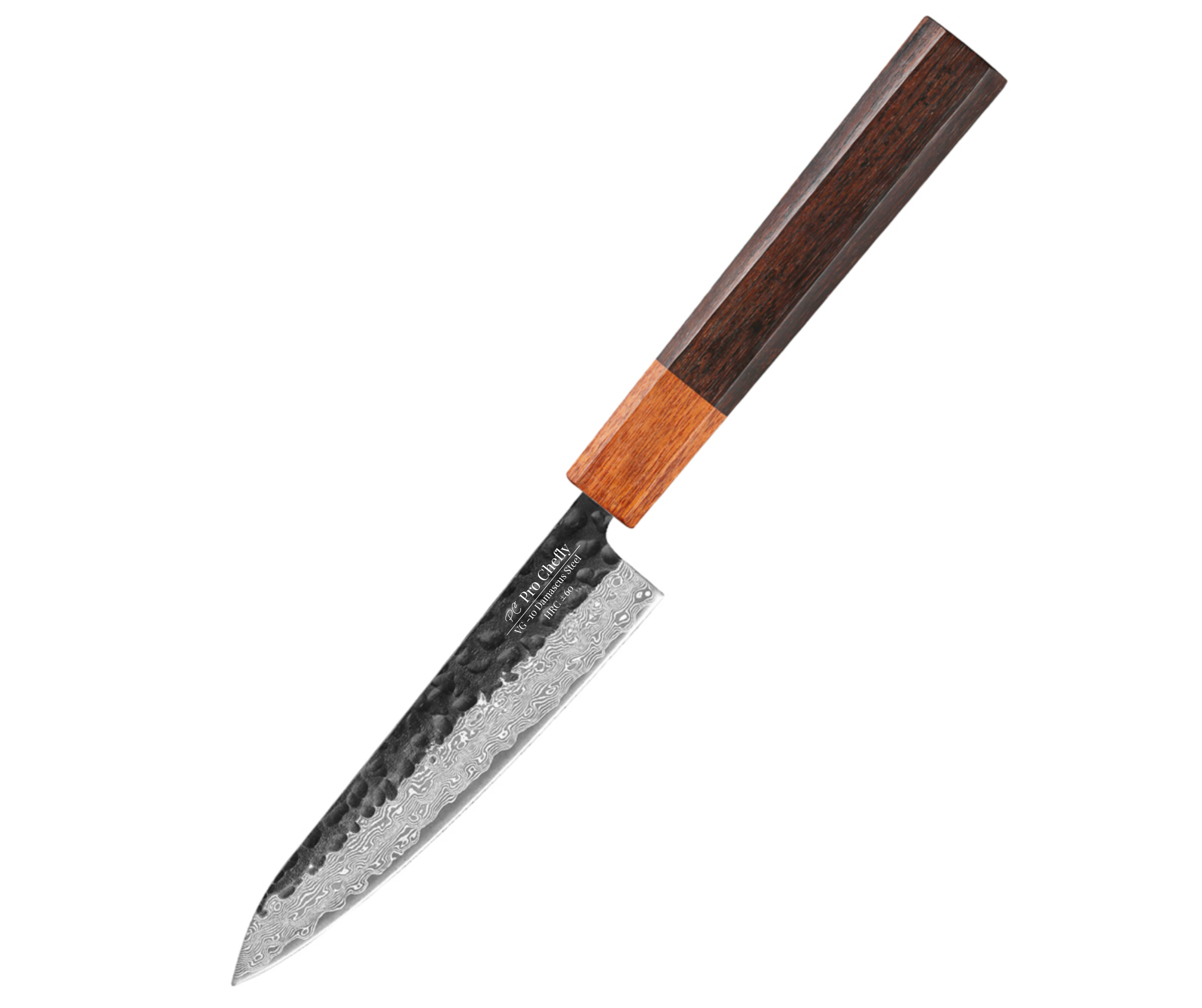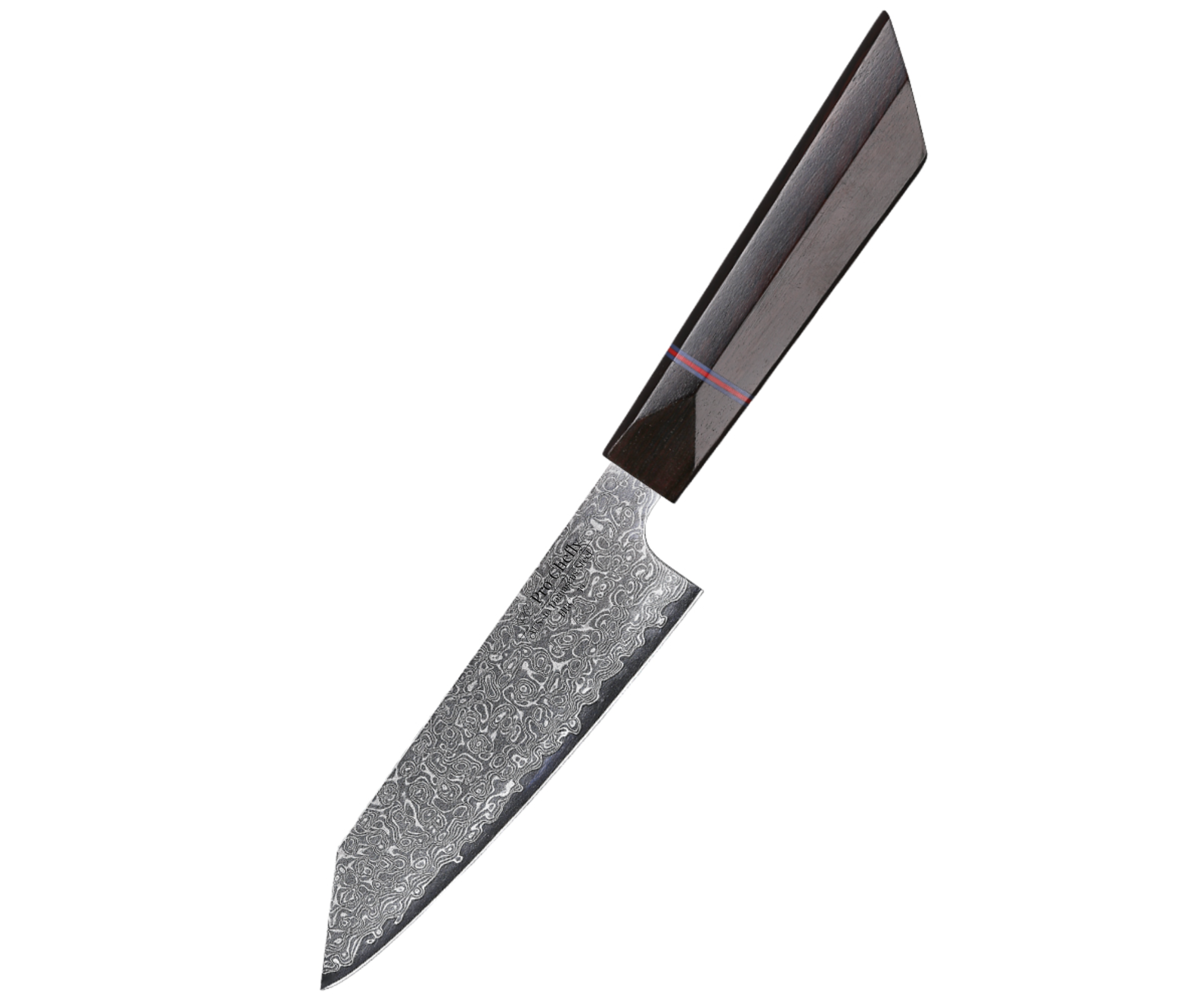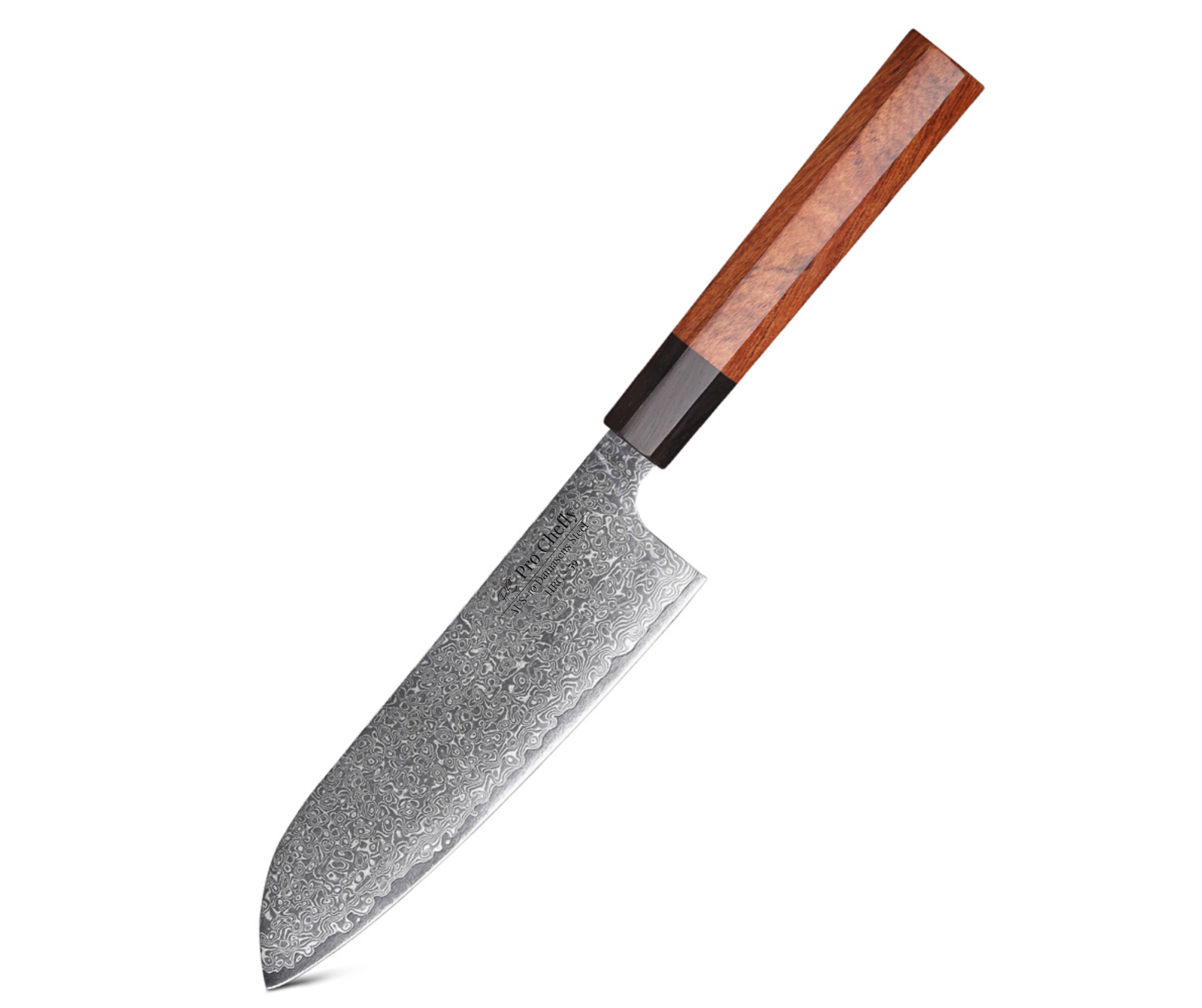Chef’s Overview
Dear Chefs, have you ever seen a kitchen knife described as “60 HRC” or “56 HRC” and wondered what those numbers mean? That little acronym is shorthand for the Rockwell Hardness Scale, the industry standard for measuring how hard the steel in your knife really is. Today we’ll break down what Rockwell hardness means, how it affects sharpness and durability, and what you should look for when buying your next chef knife.

Rockwell Hardness Scale Explained for Kitchen Knives
When I bought my first Damascus steel knife, the description said “HRC 60.” At the time, I thought it was marketing jargon. But then I learned it actually explained why the knife stayed sharp longer than my older Western blade. The Rockwell Hardness Scale measures how resistant the steel is to indentation under pressure. In plain terms? It tells you how tough the steel is. Just like I mentioned in How is Damascus Steel Forged and Why is it So Valuable, hardness is a huge part of what makes a knife perform beautifully—or not.
Why Rockwell Hardness Matters in Kitchen Knives
Hardness vs. Sharpness Retention
A harder knife (HRC 60–62) will hold its edge longer, which is why Japanese knives made from steels like VG-10 and AUS-10 shine in professional kitchens. Softer knives (HRC 54–56) dull faster but are easier to resharpen.
Hardness vs. Durability
Harder isn’t always better. Steels above HRC 62 can be brittle, prone to chips if misused. Softer steels may lose their edge sooner but resist cracking or breaking. This balance is exactly why we explored performance differences in Is Damascus Steel Stronger Than Other Kitchen Knife Steels.
The Sweet Spot for Kitchen Knives
Most high-quality chef knives fall between HRC 56–62. That’s the balance between sharpness retention and durability, giving chefs both performance and reliability.
Comparing Rockwell Hardness in Different Knives
Western Kitchen Knives
Western blades, often German or French, land around HRC 56–58. They’re softer, easier to sharpen, and forgiving for heavy-duty chopping.
Japanese Kitchen Knives
Japanese knives, especially those made with VG-10 or AUS-10, fall around HRC 60–62. They stay sharper longer but require more careful handling. As I shared in Western vs Japanese Chef Knives: Which is Better for You, this hardness difference directly ties into each culture’s cooking style.
Damascus Steel and Premium Blades
Damascus knives often use a hard steel core (like VG-10 at HRC 60) wrapped in softer layers for durability and beauty. That’s why our 8" VG-10 Damascus Chef Knife and 7" VG-10 Damascus Santoku Knife balance razor-sharp performance with long-term strength.
How to Choose the Right Rockwell Hardness for Your Cooking
Best HRC for Home Chefs
If you’re cooking at home, aim for knives between HRC 56–60. They’ll give you durability with enough sharpness for everyday tasks.
Best HRC for Professional Chefs
For pros who value precision, knives in the HRC 60–62 range are ideal. They stay sharp longer during long prep sessions, though they require more careful use.
Matching HRC to Knife Type
-
Paring knives: Slightly softer steel makes them less likely to chip.
-
Chef knives: Sweet spot around HRC 58–60 for versatility.
-
Specialty Japanese knives: HRC 60–62 for fine, razor-sharp work.
Pro Chefly’s Take on Rockwell Hardness
At Pro Chefly, we designed our knives with this balance in mind. The 8.5" VG-10 Damascus Kiritsuke Knife and 7" VG-10 Damascus Nakiri Knife feature VG-10 steel hardened to around HRC 60—perfect for sharpness, edge retention, and resilience in real kitchens.
Final Thoughts on the Rockwell Hardness Scale for Knives
Dear Chefs, think of the Rockwell Hardness Scale like a chef’s secret ingredient—it’s behind the scenes but makes all the difference. A knife’s HRC rating tells you whether it’ll stay sharp through weeks of prep or need constant honing. The key is balance. Choose wisely, care for your blade, and your knife will reward you every time it touches the board.
Knife Collections
Shop the latest in Pro Chefly Damascus Knives
Chef's Notes
Stay up to date with the latest kitchen stories and recipes

- December 05, 2025
Dear Chefs, the holidays deserve a dish that feels slow, soulful, and unforgettable — and few things capture that spirit...

- November 30, 2025
Dear Chefs, there is something unmistakably comforting about bread pudding in November — the way the custard soaks into the...

- November 25, 2025
Dear Chefs, there is something special about roasted carrots in the fall — the way they caramelize, the way their...

- November 20, 2025
Dear Chefs, there is something magical about fall stuffing, especially when pumpkin and sage join the party. The aroma alone...

- November 15, 2025
Dear Chefs, November has a rhythm of its own — a slower pace, a softer light, and a craving for...

- October 31, 2025
Dear Chefs, fall baking is a ritual — the scent of cinnamon in the air, pecans roasting low and slow,...
- Choosing a selection results in a full page refresh.
- Opens in a new window.
